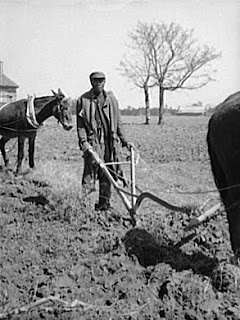 I was forced to eat cereal in a bowl of slightly outdated milk this morning because we're out of eggs. I'll have to go to the store this afternoon to stock up, and I can do that without concern because I can afford to just drive to the place and fill my cart without wondering if there will be enough money in my account to pay the bill. I won't break a sweat when I swipe my debit card, and I won't have to give up something else essential in order to have food in the fridge.
I was forced to eat cereal in a bowl of slightly outdated milk this morning because we're out of eggs. I'll have to go to the store this afternoon to stock up, and I can do that without concern because I can afford to just drive to the place and fill my cart without wondering if there will be enough money in my account to pay the bill. I won't break a sweat when I swipe my debit card, and I won't have to give up something else essential in order to have food in the fridge.Before I can buy groceries, though, I've got some work to do at the English class for Hispanic immigrants. I've been given a new assignment—working through a book on American history with the more advanced students. No, we won't be reading about the atrocities the CIA has initiated in order to keep a giant thumb on South America, in case you were wondering. We won't be learning about how we shoved native tribes farther and farther west into extinction. And we won't be talking much about tobacco and the slave trade. Not much, anyway.
The book we'll be using starts with the reconstruction of the South after the Civil War, and the first chapter introduces the subject of constitutional amendments as related to rights granted to newly freed slaves. It also glances over Booker T. Washington and his founding of the Tuskegee Institute in Alabama.
I could talk to these students about how my parents, Alabama natives who supported segregation, had "war loser" views of Reconstruction, but I think I'll stick with the history written by the winners, as most documented history is, and will only interject bits and pieces as I see fit. For example, the text explains that freed Africans were eager for an education, but it doesn't mention that in southern states, they were so eager because it had been illegal to educate slaves. And when it talks about southern laws designed to make it difficult for a black man to vote, it doesn't say that the poll taxes and literacy tests were meant to keep out the poor whites, too.
I keep hearing that passing line in "Gone With the Wind" when a carpetbagger says to a group of blacks on the streets of Atlanta, "And we're gonna give you 40 acres and a mule," drawing out the phrase with sing-song intonation as if he's talking to children, and the people repeat the phrase as if they can't believe someone would actually give them something of their own.
Those free slaves were dismissed from their plantations to starve in the woods, and the poor whites who made up most of the confederate population were just as hungry. Having their own land and a mule to help pull the plow was almost too much to imagine. Some of that land was swampy or on a rocky slope that wouldn't grow srub, much less edible produce, but all of that might be too much information for today.
We'll see. One thing is for sure, though. None of the people in our history text for today had any eggs left after the war, and they didn't have a box of cereal with some stale milk to fall back on, either. I'll try to remember to mention that in class today, but I'll especially keep it in mind while I'm pushing my cart through the grocery store.
Comments
It's good that you'll be able to teach them something that you have personal knowledge of through your family history. A teacher who can bring history to life is a precious thing indeed.
There were atrocious misjudgements made by all colonising forces; not least in my own country and the indigenous population here is still suffering a lack of medical care that makes me ashamed. I agree with Dive, insert a little extra background if you think that your class can handle it.